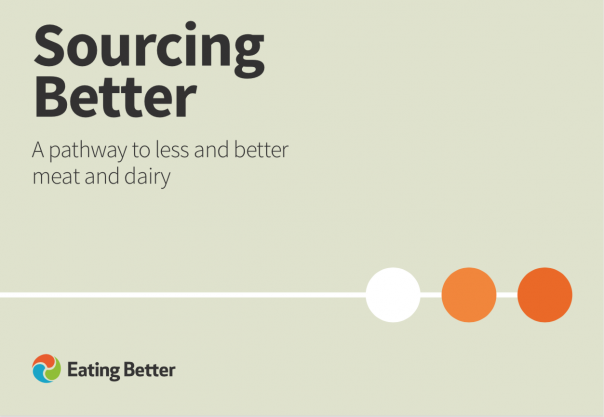
Simon Billing, executive director at Eating Better, says: “It’s the first time the Eating Better alliance has come together to produce a clear pathway to the sourcing of better meat for the food service and retail sectors, harnessing the expertise and experience of the leading civil society organisations which make up the alliance.
“Drawing on the ‘Better By Half’roadmap, the ‘Sourcing Better’ framework recognises that a holistic approach is necessary to raise standards across production, while at the same time, significantly lowering the volume of meat produced.
“To this end, the plan identifies eight key impact areas that need to be addressed in sourcing policies: from the way in which the animal is reared and fed, limiting the use of antibiotics, to tackling GHG emissions and nature loss, minimising pollution, water scarcity and run-off, and improving soil health.
“We’re calling for transformational change for all meat sold, while recognising the challenges this presents to the retail and foodservice industries.
“While these sectors are rightly focused on ensuring the country is fed during lockdown, when we are over the worst, we need to look at the issues and concerns around meat production as a whole and the impact it has on the planet.
“Our aim is to support retailers and restaurants on the journey to sourcing better and this guide is a first step to achieving that, and, ultimately, to making less climate and nature friendly meat, available and affordable to all.”
The ‘Sourcing Better’ guide suggests a clear and concise three-step process to better procurement, using the target indicators of ‘basic’, ‘better’ and ‘best’, all of which are linked to the eight key impact areas on how animals are fed and reared.
The goal is to move beyond the current baseline and standards’ certifications, to a system which favours the highest animal welfare and the lowest impact on the environment.
Philip Lymbery, global chief executive of Compassion in World Farming, adds: “This critical and timely resource from Eating Better, outlines for the first time what ‘better’ could look like on supermarket shelves, or restaurant menus, in the years ahead.
“We can’t have ‘better’ without ‘less’ and the strength of our alliance comes from having consensus on the need to reduce our meat and dairy consumption in the UK as outlined in Eating Better’s excellent Better by Half Roadmap, which is backed up by a solid bank of scientific evidence.
“Now we are defining ‘better’ and, crucially, how to measure progress.
The ‘Sourcing Better’ guide maps a move away from intensive livestock production to a system that values the animal and poses fewer risks to people and the planet.”
And David Edwards, director of food strategy at WWF, also backs the direction the guide is taking.
“Nature is in freefall and our climate is in crisis, and the way we produce and consume food is one of the main drivers of this global emergency.
“We must stop the food we eat in the UK from causing the destruction of nature both at home and abroad, including in critical areas like the Amazon.
“This new guide sets out a clear vision for more sustainable, nature and climate-friendly supply chains for meat and dairy, which is good news for farmers, retailers and the public – as well as the health of our planet.”
Finally, Will Nicholson, project lead for Plating Up Progress at the Food Foundation, concludes: “The ‘Sourcing Better’ framework is a blueprint for transitioning to better meat and dairy as we build back from the pandemic.
“It provides us with a valuable tool to help halt and reverse the most destructive food production practices of the livestock sector, and incentivise the better practices.
“We need a level of ambition that matches the challenges ahead. The retail and service sectors should take the lead in this, supported by investors, who are increasingly waking up to the need for change in both how we produce and consume meat and dairy.”
• The ‘Sourcing Better’ guide is aligned with Eating Better’s ‘Better By Half’ Roadmap and long-term vision to stimulate a 50% reduction in meat and dairy consumption in the UK by 2030 and a transition to better production as standard. The alliance welcomes engagement and feedback on this new resource to further the aims and objectives of the Eating Better alliance.